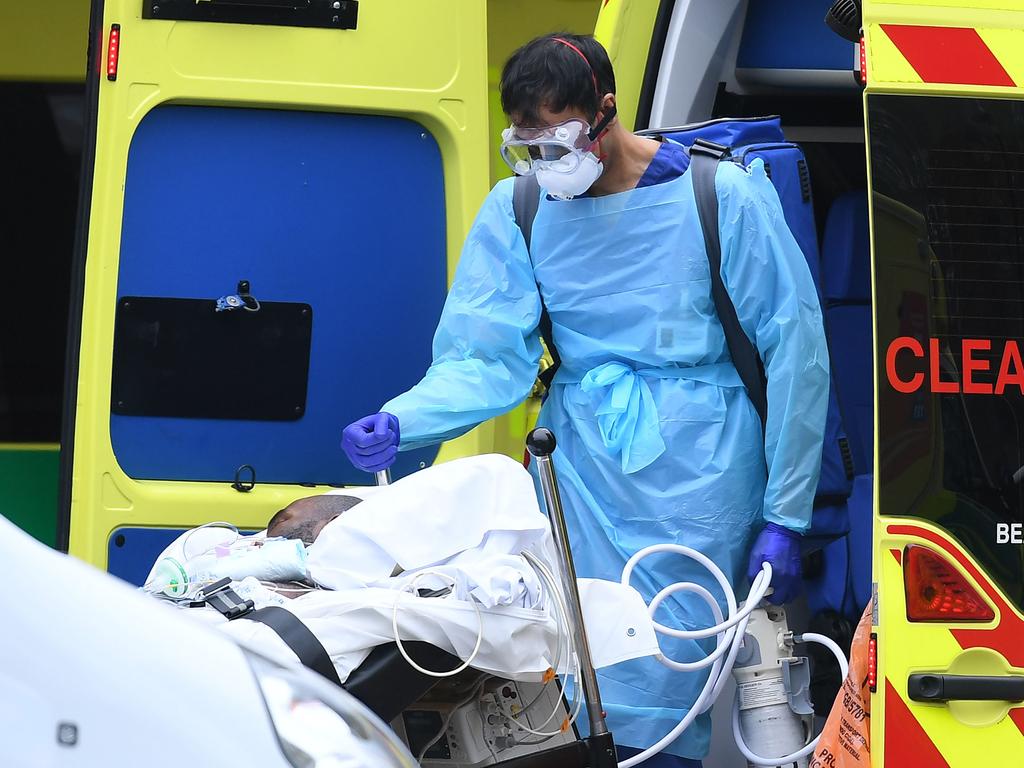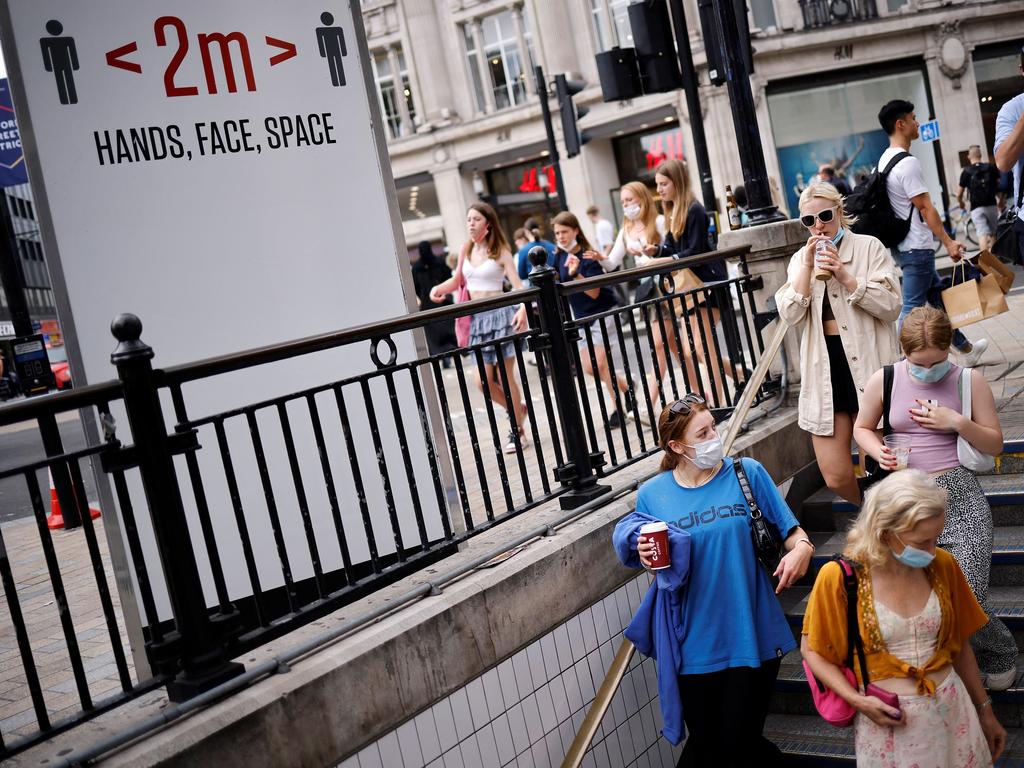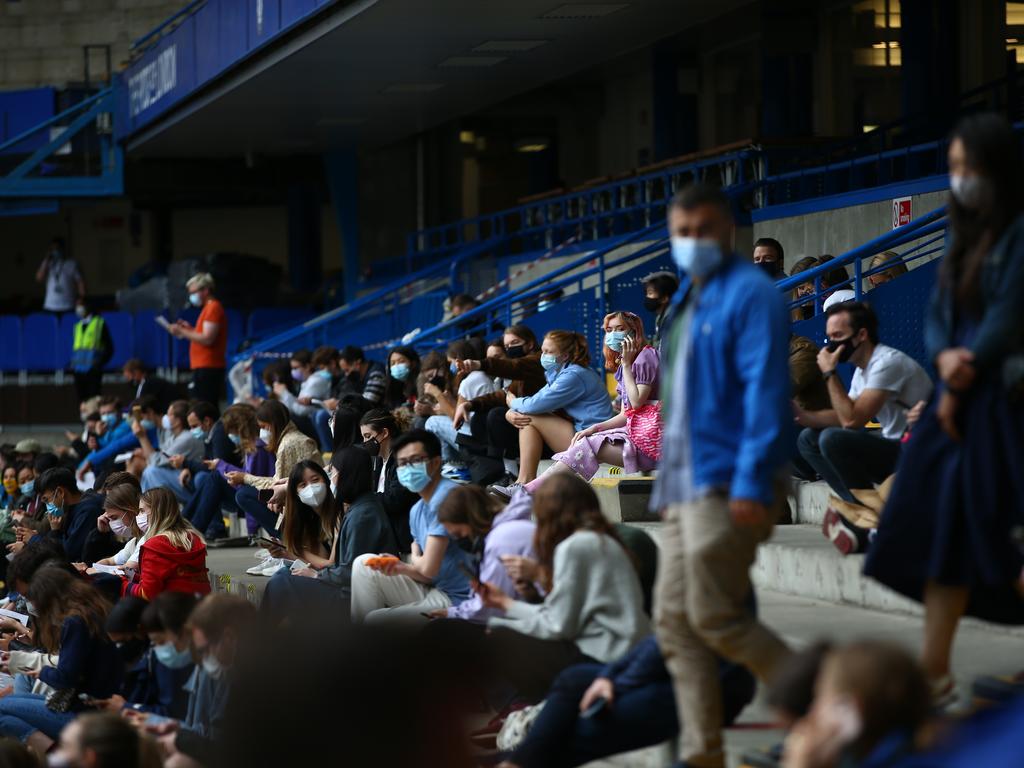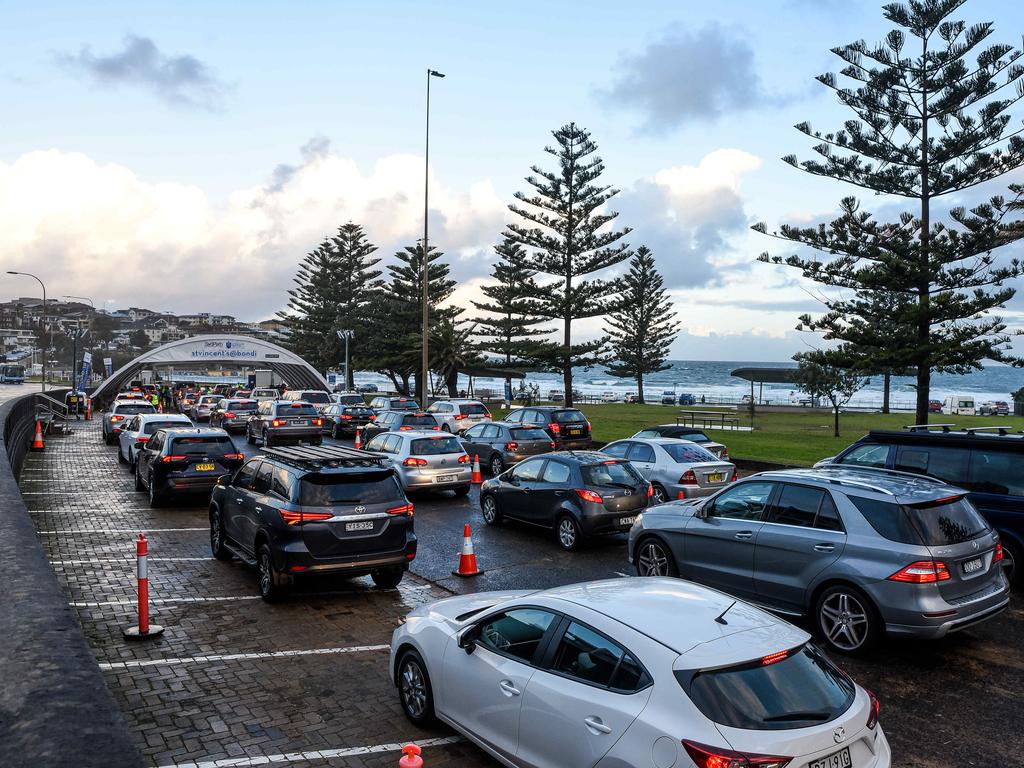‘Third covid wave’ hits the UK as Delta variant spreads to more than 80 per cent of the country
Things are getting worse for the UK with a steep rise in Delta variant cases, and there’s one key statistic Australians should be “worried” about.

A “third covid wave” has hit the UK, with a steep rise in cases being recorded throughout most of the country as the Delta strain continues to take hold. And there’s a key statistic that an expert says Australians should be “worried” about.
The number of coronavirus cases across the UK has increased by 33,630 to 75,953 over a period of just seven days.
“Cases are rising rapidly across the country and the Delta variant is now dominant,” said chief executive Jenny Harries from the UK’s Health Security Agency.
“It is encouraging to see that hospitalisations and deaths are not rising at the same rate but we will continue to monitor it closely.”
According to Public Health England data, the Delta variant now comprises 91 per cent of sequenced cases. However, using most recent data which includes genotyped data which has more rapid turnaround times, 99 per cent of cases are believed to be Delta.
Professor Adam Finn, a scientific adviser for the UK government, told Radio 4’s Todayprogram of the Delta case numbers, “It’s going up, perhaps we can be a little bit optimistic it’s not going up any faster, but nevertheless it’s going up, so this third wave is definitely under way.
“We can conclude that the race is firmly on between the vaccine program, particularly getting older people’s second doses done, and the Delta variant third wave.”
When asked if he was confident that vaccinations could outpace the Delta variant, he replied, “No”.
RELATED: Delta strain becoming dominant globally

Professor Tim Spector, lead scientist on a covid study app called Zoe, and professor of genetic epidemiology at King’s College on London, told The Telegraph cases should peak within two weeks.
“Rates in the North West and Scotland are still going up but you can definitely see signs they are starting to level off,” Prof Spector said. “London look like it’s starting to slow down.
“If we look at the way past waves have come and gone I would be predicting that this should be peaking around 10 to 14 days time and then start to fall, so by four weeks we are at a much lower level than we are now, and much more manageable.”

Scientists say the UK’s new “mini wave” is mainly affecting young people and the unvaccinated, according to data from the Zoe app.
However, the statistics show those most at risk are being protected, with the infection rate for those fully or partially vaccinated falling from 89 per cent to 53 per cent over the past few days, The Sun reports.
More than 700,000 Britons have booked for the covid vaccine as the NHS vaccination program has now been opened up to people aged over 18.

A warning to Australia?
Experts believe the volume of travel in the UK has been a significant factor behind the rise in cases, with the Delta variant introduced at least 500 times by travellers. However, the true number could actually be more than 1000, according to Dr Jeffrey Barrett from the Sanger Institute, who analyses covid tests swabs for mutations.
The spike in cases also came at time when restrictions were being relaxed amid wet and colder weather, which pushes more people to stay inside and also allows the virus to survive longer outside.
It’s an eerily similar scenario to what we are now facing in Australia. Much of the country has been gripped by a cold snap, with more Aussies choosing to remain indoors at a time where restrictions had been very relaxed.
Now, restrictions are back in place in some areas of NSW as authorities race to control a growing covid cluster in Sydney which has risen to nine since a limousine driver who transported international flight crew sparked the outbreak.
Countries with low vaccination rates – such as Australia – face a particularly “worrying” prospect as the Delta variant becomes the dominant variant in some countries, and possibly worldwide, Dr Muge Cevik, an infectious disease specialist at the University of St Andrews has warned.
Despite a recent acceleration of the vaccination program, just 3 per cent of Australians are vaccinated against covid, according to John Hopkins University data.
That’s compared to countries with high vaccination rates including 68 per cent in Seychelles, 64 per cent in San Marino, 56 per cent in Israel, 55 per cent in Malta, 53 per cent in Bahrain and 52 per cent in Mongolia.
By comparison, the US has a rate of 46 per cent.
RELATED: The NSW venues of concern for covid

Wales is following the same trend as the UK
Meanwhile, Wales is believed to be just two to three weeks behind England and Scotland in rising case numbers as the Delta variant also takes hold.
First Minister Mark Drakeford told the BBC there had been a “sustained, week-on-week increase” in the rate of Covid-19 in Wales. He said there was a “particularly sharp rise” in people aged under 25.
“Wales may be two to three weeks behind what is happening in England and in Scotland, where tens of thousands of cases have been confirmed, there is widespread transmission and reports of increased hospital admissions as well,” Mr Drakeford said.
It comes amid devastation in Brazil, which has just recorded half a million deaths from covid. The country is being hit with more than 2000 daily deaths this week, with a population of 210 million.




